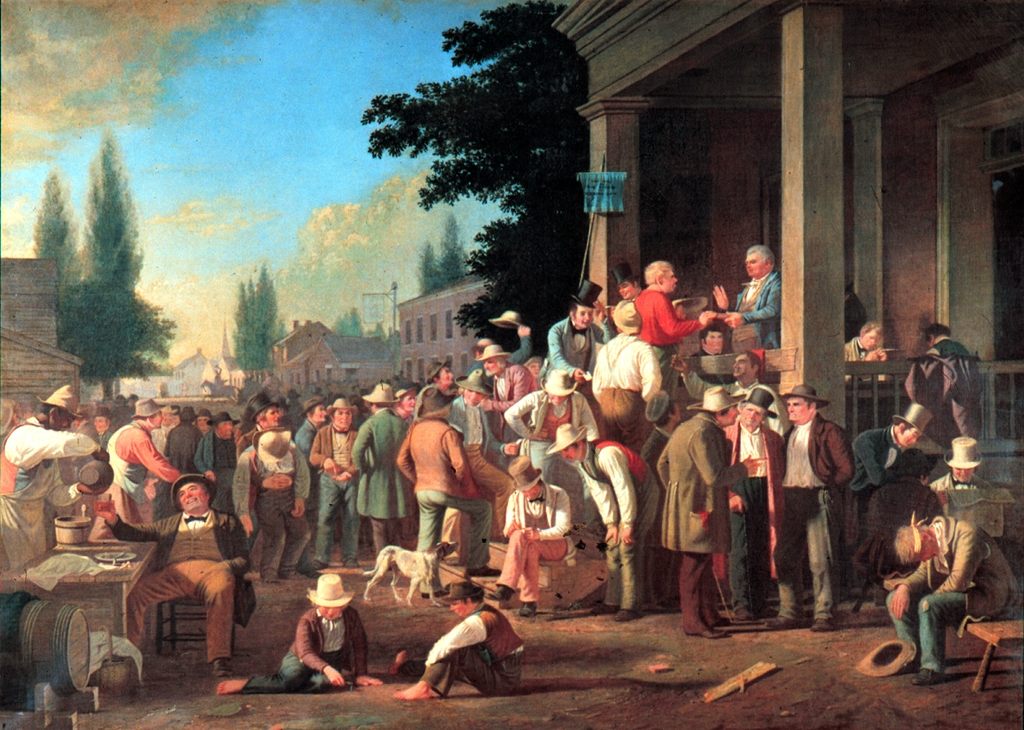The Founders were aware of election fraud and was one of the reasons the popular vote was tempored by the creation of the Electoral College.

George Caleb Bingham's 1846 painting The County Election, depicting a polling judge and voters, some of whom are drunk. (Photo: Public Domain)
Quote:
Those concerns stem from the very real voting fraud schemes of the 19th century, when political parties employed tactics more often associated with pirates and human-trafficking gangs. Before sophisticated computer models were used to get out the vote, violent gangs would kidnap voters, feed them alcohol or drugs and force them to vote multiple times dressed in various disguises. Known as "cooping," this was a common strategy to ensure a win on election day.
In the 1800s, United States elections were rife with fraud, and political parties were more like private clubs than the bureaucratic representatives we have today, so cooping fit right into politics of the time.
A book on the history of Catholicism in the United States says that "the practice of "cooping" voters on election day was quite common," and campaign gangs who corralled voters were, according to one definition, "wining and dining [victims] till they "vote" according to wishes of the "Coop-manager," disrupting the American voting process.

George Caleb Bingham's 1846 painting The County Election, depicting a polling judge and voters, some of whom are drunk. (Photo: Public Domain)
Quote:
While the public was aware of and disgusted by cooping, it was so ingrained in American politics that it continued through the end of the 19th century. In 1842, Washington's Weekly Globe wrote that the "Federalist Party in the United States, during the last presidential election, introduced all these contrivances" supposedly in lieu of the United Kingdom's cooping schemes, which included "bribing, thumbing, bullying, and the abduction of voters, steeped in drunkenness." One report in the same article even claims that 300 voters were, according to some witnesses, transported away to different countries to keep them from voting in local elections.
Many cooping victims were immigrants. As naturalization was formalized for the influx of European immigrants in the mid-1800s, new citizens were eligible to vote in the United States, along with most free white men (at that time all women, and men of color, were not). Americans born in the U.S. viewed the immigrant votes as a threat, and would coop immigrant voters in undisclosed locations to keep them from votingor force them to vote for candidates supported by the gang.
LINKQuote:
Votes were easily manipulated by gangs at the time: voter's lists and pre-registration in the 1800s were hard to track by hand, and voting wasn't particularly private. Before the election began, voters would collect highly-visible, labeled voting tickets for a candidate, stand in line, and give their tickets to a ballot officer at their local polling place. Often, it was impossible to figure out who had voted when or where, and some candidates hired gang members as voting marshals to oversee elections. The phenomena was so rampant that some biographers of Edgar Allan Poe ascribe his death to a cooping incident during a Baltimore election, though this is not confirmed.

